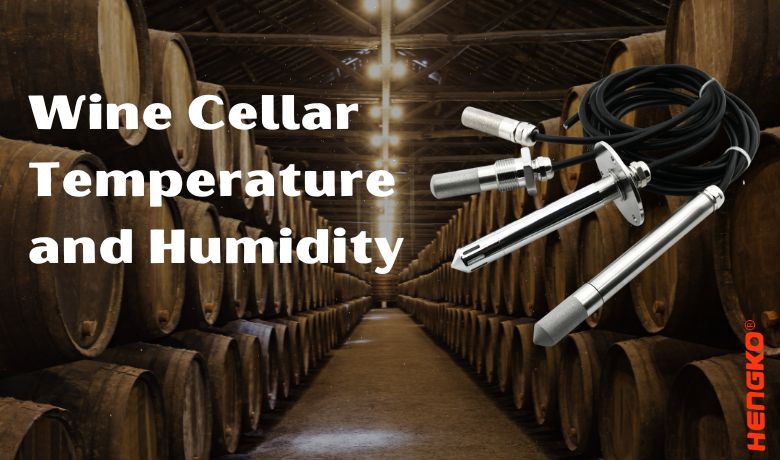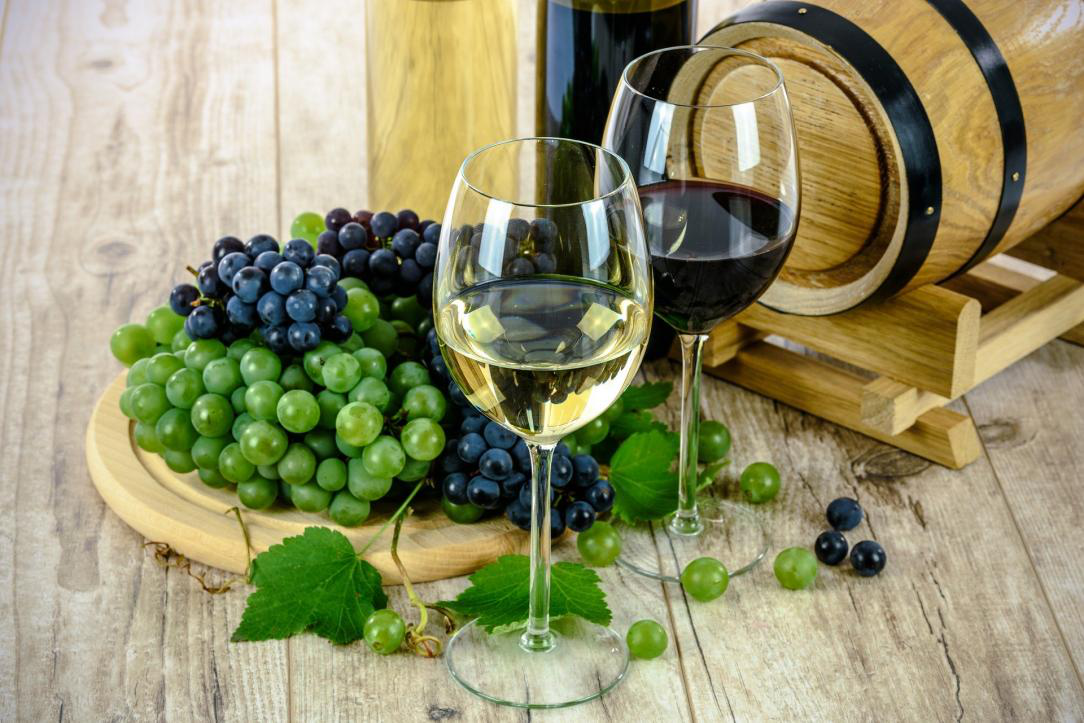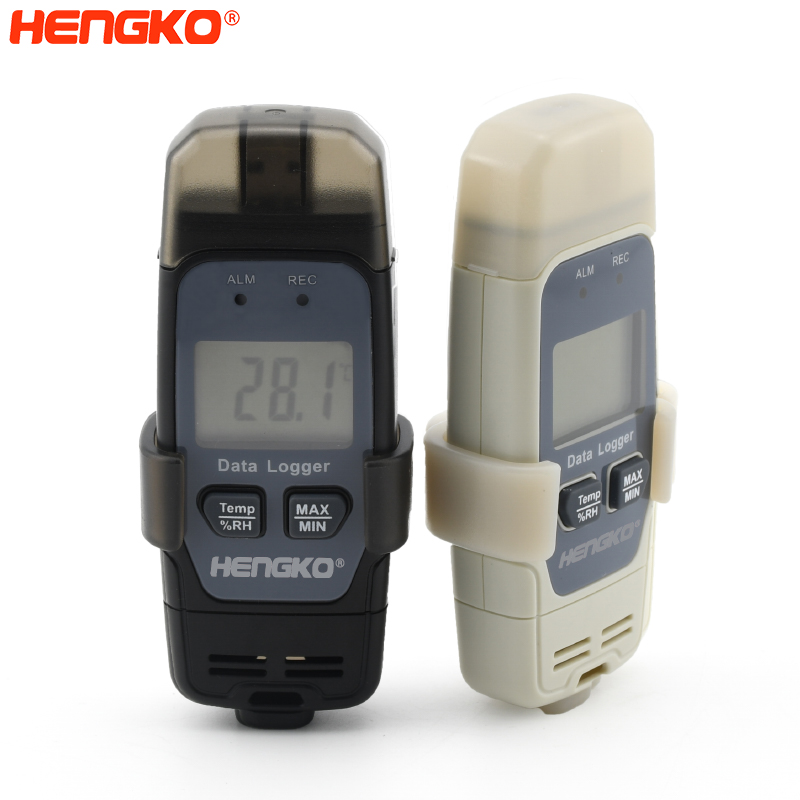How Important of the Temperature and Humidity of Cellar?

If you have a large stock of wine in your family or are interested in cellar-fermented wine, you can't ignore two important parameters, temperature and humidity.
So you need to know more details about temperature and humidity of Cellar.
Understanding Cellar Environment
The Role of Temperature
Have you ever thought about why we can't just store things like wine and cigars anywhere? Temperature plays a crucial role in the cellar. When it's too high, wine can age prematurely, and cigars can dry out. If it's too low, the process of aging may slow down to a crawl. Think of temperature like Goldilocks: it needs to be "just right."
The Role of Humidity
Humidity, on the other hand, might seem like a secondary player but it's just as important. Low humidity can cause corks to dry out and shrink, allowing air into the bottle and spoiling the wine. For cigars, it can cause them to become brittle and lose their essential oils. Imagine a piece of bread left out on the kitchen counter; without the right humidity, your wine and cigars could end up just as stale.
The ingredients of red wine are very complex. It is a fruit wine brewed through natural fermentation. It contains more than 80% Grape juice, and the alcohol produced by the natural fermentation of sugar in grapes, generally 10% to 13%. There are more than 1000 kinds of remaining substances, more than 300 kinds of more important ones. Wine is very sensitive to environmental conditions, it will cause wine deterioration if the environment is not excellent. Such as lose taste, color and other features.
The most worry about is the sudden change in temperature and humidity. So, it is vital to keep the temperature in the cellar. That’s why the cellar usually under the ground keeping closed,
prevent the influence of outdoor temperature. But, the simple isolation of a wine cellar is not enough to ensure the safety of our wines. The inner constant temperature control needs long term monitor and with the help of other technical methods. The ideal cellar constant temperature range is according to the type of wine. But it is available from -10℃ to 18℃.
Impact of Temperature and Humidity on Stored Items
Effect on Wine
1. Wine Spoilage
When the temperature in a cellar becomes too high, wine can start to 'cook,' leading to flat flavors and aromas. You wouldn't put a prime steak in the microwave, would you? Similarly, you shouldn't let your wine get overheated.
2. Optimal Conditions for Wine
For wine, the ideal cellar temperature is between 45°F - 65°F (7°C - 18°C), and the perfect humidity is around 70%. When you hit these marks, you're giving your wine the best chance to age gracefully.
Impact on Cigars
1. Dry Cigars
Low humidity can cause cigars to dry out, leading to a harsh, hot, and unpleasant smoking experience. Picture smoking a piece of dried wood. Not ideal, right?
2. Optimal Conditions for Cigars
For cigars, a cellar temperature between 68°F - 70°F (20°C - 21°C) and a humidity level between 68% - 72% is ideal. These conditions maintain the quality and flavor profile of the cigars, letting you enjoy them as the maker intended.
The Stored temperature and the temperature when tasting the wine are both important. It not only make the aroma send out completely, but also in the taste balance degree, also achieve the best if tasting the wine in the suitable temperature.
There will have different drinking temperature according to the wine storage time, sweetness and other elements.
Now, I think you have to understand that the temperature is very important for the storage and drinking of wine. As bellow, we will learn about the humidity.

Regulating Cellar Temperature and Humidity
1.Cellar Cooling Systems
To maintain the temperature in a cellar
, you may need to invest in a cellar cooling system. These systems work like air conditioners, keeping the temperature constant and ideal for your stored items. Remember, consistency is key!
2. Humidifiers
Now, controlling humidity can be a bit tricky. In many cases, a cellar humidifier might be necessary. These devices work to increase the humidity levels, preventing your corks from drying out and your cigars from becoming brittle. It's like providing a little oasis for your precious goods!
3. Common Cellar Temperature and Humidity Problems
High Temperature
So what happens if your cellar gets too hot? Wine could turn to vinegar, and cigars could become stale and lose their flavor. You don't want your cellar turning into a desert, do you?
4. Low Humidity
On the other end of the spectrum, what if your cellar becomes too dry? Wine corks could shrink and let in air, spoiling the wine. Cigars could become dry and brittle, leading to an unpleasant smoking experience. Picture cracking a crisp fall leaf, that's what low humidity can do to your cigars.
The bottle is sealed and the wine is not exposed to the outside environment. Actually, the bottle is sealed by cork which is sensitive to humidity. If the humidity is too low, the cork will dry out and lose its elasticity, resulting in a less effective sealing of the cork. The wine will leak and evaporate or oxygen will seep into the bottle. If the humidity is too high, mold may form on the cork and label, which will affect the appearance of the product. The ideal humidity is between 55% to 75%.
We can use the wireless temperature and humidity data logger to monitor the change range of temperature and humidity of cellar.
HENGKO HK-J9AJ100 serious and HK-J9A200 series temperature and humidity data logger adopts high precision sensor to measure the temperature and humidity. It can automatically record and save data according to your setting intervals. Its intelligent data analysis and manager software provide a long time and professional temperature and humidity measuring, recording, alarming, analyzing …to meet the requirements of different applications of temperature and humidity sensitive occasions.
Our data logger with exquisite appearance, easy to carry and install. Its maximum capacity is 640000 data. It has USB transport interface to connect computer, using with the Smart Logger software can download the data chart and report.
FAQs
1. What is the ideal temperature for a wine cellar?
The ideal temperature for a wine cellar is typically between 45°F - 65°F (7°C - 18°C). This range is considered optimal as it allows wine to age properly without the risk of premature oxidation or degradation. However, it's essential to remember that consistency is key in cellar temperature. Fluctuations can cause expansion and contraction of the wine and air inside the bottle, potentially damaging the cork seal and leading to spoilage.
2. What is the perfect humidity level for storing wine?
The perfect humidity level for storing wine is around 70%. This level of humidity helps to keep the cork in an optimal condition, preventing it from drying out. A dry cork can shrink and allow air to seep into the bottle, leading to oxidation which can spoil the wine. However, too much humidity can lead to mold growth and label damage. Therefore, maintaining a balanced humidity level is crucial.
3. What conditions are best for storing cigars in a cellar?
For storing cigars in a cellar, a temperature between 68°F - 70°F (20°C - 21°C) and a humidity level between 68% - 72% is considered ideal. These conditions ensure that cigars maintain their structural integrity and optimal flavor profile. Too low humidity can cause cigars to dry out and become brittle, while too high can promote mold growth and cigar beetles infestation.
4. Why is humidity important in a cellar?
Humidity plays a significant role in cellars, especially those used for storing wine and cigars. It helps to maintain the quality of stored items and prolong their shelf life. For wine, a proper humidity level prevents the cork from drying out and letting air into the bottle, which can spoil the wine. For cigars, adequate humidity prevents them from drying out and maintains the oils that contribute to their flavor.
5. Can a regular air conditioner be used in a cellar?
While it might be tempting to use a regular air conditioner in a cellar, it's not typically recommended. Regular air conditioners are designed to cool the air and remove humidity, which can result in a cellar environment that's too dry for optimal wine and cigar storage. Instead, specialized cellar cooling systems, designed to maintain a stable temperature without drastically lowering humidity, are usually the better option.
6. How can I regulate the humidity in my cellar?
Regulating humidity in a cellar can be achieved through various means. Using a humidifier can help increase humidity levels if they are too low. For cellars with naturally high humidity, good ventilation and insulation can help prevent excess moisture buildup. Additionally, using a hygrometer can help you monitor humidity levels and make adjustments as needed.
7. What happens if the temperature in my cellar is too high or too low?
If the temperature in your cellar is too high, it can lead to premature aging of wine and drying out of cigars. Conversely, if the temperature is too low, the aging process of wine can slow down significantly, and cigars can become too moist. Both scenarios can negatively impact the quality and flavor of your stored items.
Whether you're looking to create the perfect cellar environment or seeking professional advice on temperature
and humidity control, HENGKO is here to assist. Our team of experts are available to answer any questions and
provide guidance tailored to your specific needs. Don't let your precious wine and cigars suffer due to improper
storage conditions. Contact us today at ka@hengko.com for a consultation. Remember, creating an ideal cellar
environment is an investment in the quality and enjoyment of your collection. Reach out to us now and take
the first step towards achieving the perfect cellar!
Send your message to us:

